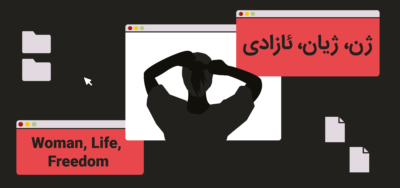Iran’s ICT policy-making landscape is complex, and for much of the last decade has been in flux. But a new raft of legislation being spearheaded by ICT Minister Mohammad-Javad Azari Jahromi looks set to comprehensively reshape the sphere, potentially ushering in a period of lesser volatility, greater consensus, and likely the continued degradation of Iranian citizens’ digital rights.
For much of President Rouhani’s first term in office, the state’s approach to issues of internet regulation were defined by ongoing conflict between the ICT Ministry and judiciary officials — a battle that spilled over into the Supreme Council of Cyberspace (SCC) and the Committee to Determine Instances of Criminal Content (CDICC) on numerous occasions.
But five years into Rouhani’s presidency we believe that Iran’s formerly messy and incoherent processes of internet policy formulation have undergone some significant changes, with ICT Minister Mohammad Javad Azari-Jahromi and his team beginning to articulate a more coherent — and sometimes alarming — vision for the development of the internet in Iran.
In particular, a set of new legislation proposed by Iran’s ICT Ministry — which enjoys the support of the judiciary and the tacit approval of the SCC — looks set to create new legal architectures to govern fields ranging from eGovernment, to data protection, to cryptocurrencies. These new bills will mark the first legislative innovations since the 2010 Computer Crimes Law, and taken together they look set to be even more transformative.
These upcoming bills are:
- Electronic Transactions Bill
- E-Governance Bill
- Intermediary Liability Bill
- Electronic Identification Bill
- Data Protection and Privacy Bill
- Managing Social Messaging Apps Bill
Apart from these bills — of which drafts have been published — we know that other legislation is likely to be brought forward in the next couple of years. These bills will relate to child protection, and cryptocurrency regulation. We also expect significant planning of Iran’s digital sphere to feature in the upcoming Seventh Development plan
In light of these developments, our team thought it was important to provide an up-to-date guide to the current workings of ICT policy in Iran. In this special edition of Filterwatch, we provide a comprehensive break-down of how policy is developed, who is engaged in the process, and what’s on the current agenda.
We’ll begin by providing a short introduction to some of the leading centres of ICT policy-making power in Iran in the Rouhani era. By moving beyond the traditional battle between ‘reformists’ and ‘conservatives’, we attempt to explain the multifaceted and complex nature of the policy debates that have been wracking the Iranian ICT policy sphere in recent years.
By mapping these players, we open up new questions about the contestation of policy-making power in the Islamic Republic today, and start to explore how this upcoming legislation sits within this delicate balance of power.
We also provide a run-down of the ICT bills that have already been announced by the Iranian government. Based on existing drafts, we will attempt to articulate some of their potential impacts upon citizens’ digital rights — and also to begin to develop a roadmap for pushing back against their most regressive elements.





